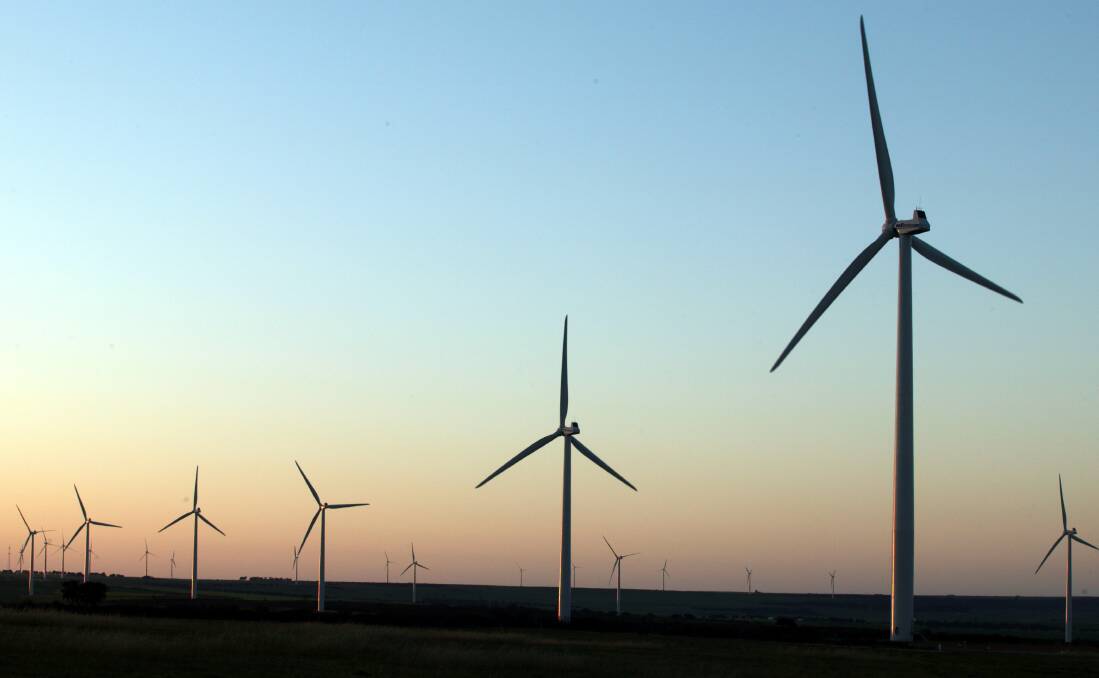
Wind energy not a fad
SOME impressions given in 'Are we repeating history' (July 23) deserve comment and correction, especially in light of proposals for new wind farms in Victoria.
Subscribe now for unlimited access.
$0/
(min cost $0)
or signup to continue reading
Ms Kearns' letter implies electricity price rises in South Australia are a direct result of expansion in wind farms and their inability to provide continuous base-load supply. This is a very simplistic view of the electricity industry and of state and federal energy authorities, which are responsible for planning long-term security of supply at reasonable prices while reducing environmental impacts from the energy industry; the largest contributor to CO2 emissions and global warming in Australia.
People who understand the science and politics of the energy industry applaud South Australia's achievements in growing the wind industry to 42 per cent of electricity generation. However, they are concerned about failure of energy authorities to ensure continuity of electricity supply in peak periods.
Instead, the agencies have increased the risk of periods of un-met peak demand and hence electricity price rises by:
- Privatising vital power stations;
- Failing to increase capacity of interstate power connections, and;
- Failing to support the building solar-thermal power generation at sites like Port Augusta.
Electricity price rises in South Australia can be directly related to errors in energy planning that allow exorbitant prices to be charged by private gas-fired electricity generators during peak demand periods.
Overall, wind power has reduced the cost of electricity in South Australia and in other states to which substantial electricity is exported.
Wind farms in South Australia reduce CO2 emissions by over 400,000 tonnes annually, bring employment and inject vital money into rural areas.
Of course, we should learn from problems in energy planning in other states, but Victorian electricity supplies are more diverse and better inter-connected than in South Australia so risk of price rises is reduced. The growth in generation from solar power greatly enhances the value of wind power, by filling in the gaps in hot periods when wind power generation is lowest.
The weirdest aspect of anti-wind-power letters, is the way they totally ignore the urgent need for change to renewable energy. Wind energy is no longer an optional fad. Overwhelming evidence shows global warming is changing our climate and increasing the dangers of catastrophic fires, heat-waves, droughts, floods and crop failures, heatstroke and other health impacts.
The prospects for our future safety declines every year we delay major reduction in CO2 emissions. Yes, we can learn better ways to plan renewable energy, but do we really want to oppose wind energy on a whim; when it offers our children a glimmer of hope for a safer future?
- John Petheram, Ballarat North
New CEO impressing
JUSTINE Linley has only been the chief executive officer for the City of Ballarat since May and already she's impressed many with her intent to 'right the wrongs' of our elected councillors.
During meetings with members of the public, Ms Linley has expressed a strong intent to reverse both the puzzling civic hall-library hybrid plan and the relocation of the Latrobe Street saleyards to Miners Rest.
She's stated it's her aim to seal both decisions before council goes into 'caretaker mode' next month. I implore councillors to listen to the sole voice of reason within town hall (Ms Linley) and let common sense prevail.
It looks as though we may finally have a CEO worth her salt.
If only we can match that with a new council formation after the election to take this city into a new consultative paradigm of opportunity.
- Rob Edward Smith, North Ward, Ballarat City Council candidate

